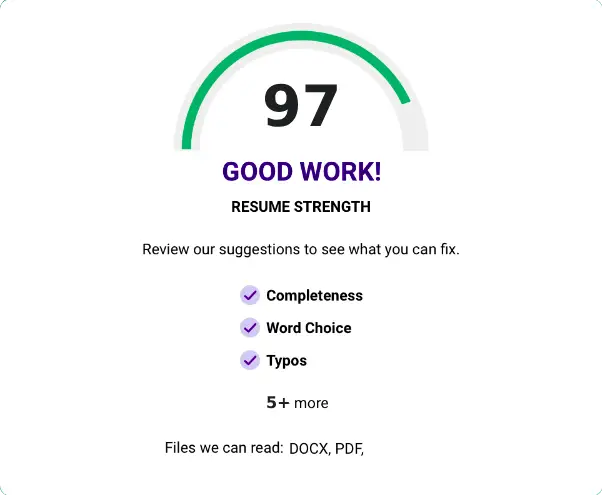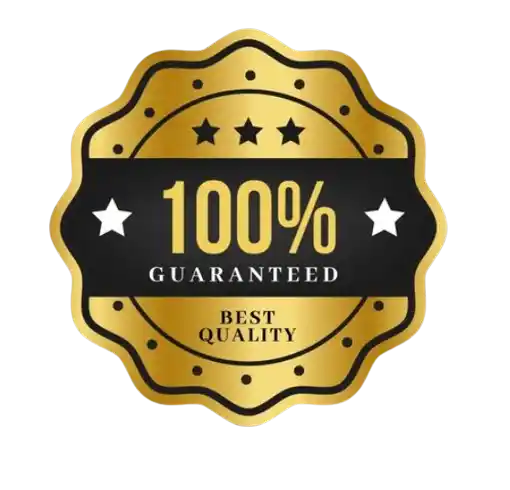Customization
Adding skills and keywords from the job description helps show you’re a good fit. It can also help you get past screening software.
Typos
Many employers will reject a resume with even one typo, so you’ll want to make sure yours is error-free. Typos include any errors in words, numbers and extra spaces.
Strong summary
This is your opportunity to capture an employer's attention and showcase why you're the ideal candidate. A summary provides an overview of your key skills and achievements.
Measurable Results
The best resumes highlight achievements with specifics. Impress employers by showcasing your accomplishments, such as “Managed 50+ customer calls daily” or “Increased sales by 10%.”
Word Choice
Avoid using personal pronouns, like “I,” “he,” “she” or “they,” and filler words like “a,” “an” and “the.” It makes your writing sound more professional
Formatting
The formatting of your resume is the first thing an employer notices. You can make a great first impression with a well-organized resume.
Length
Employers typically spend just six seconds reviewing a resume at first glance. Provide sufficient information without overwhelming them; aim for about 1,100 characters.
Clear Contact Info
Make it easy for employers to contact you by including at least two methods of communication in your resume’s contact information.
Completeness
Your resume is your ticket to getting noticed. Ensure it provides all the necessary information for employers to make a decision, including contact details, a summary, work history, and skills.











